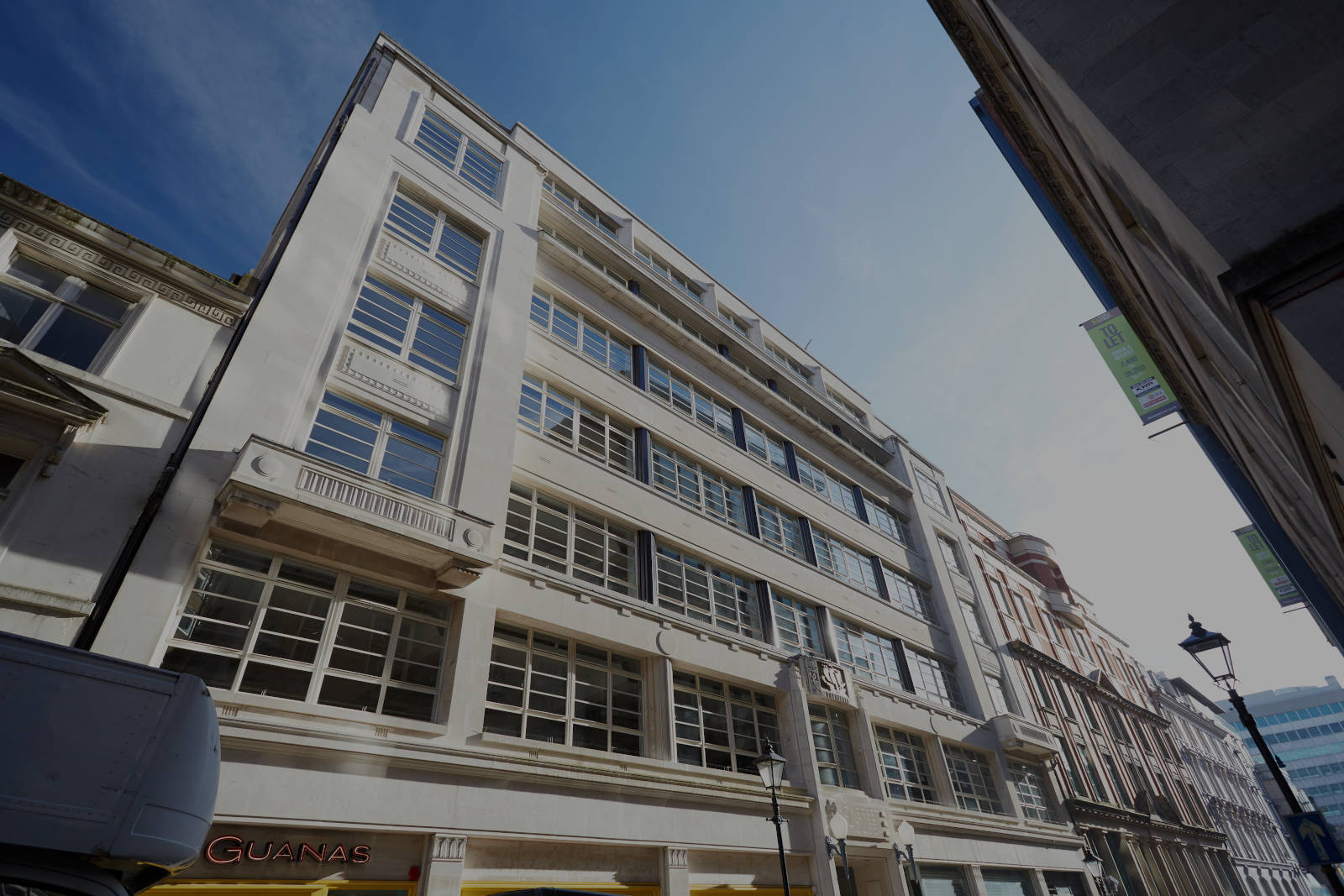You. Smart. Thing., Somerset House, Birmingham UK
On behalf of Headspace Group, Edward Smith for Highbury Communications interviewed Chris Thompson about YSTs decision to champion the workplace over working from home full time.
In the midst of a second lockdown, how can businesses navigate a safe return to the office once this is over?
As we navigate a second national lockdown, it’s a nervous time for business owners and their employees. Aside from the obvious health and safety concerns that we all share, how will businesses be affected by the prolonged uncertainty around all things Covid-related? And when will we be able to get back to a more normal working environment? For me, that second point is particularly important. The government came under some criticism for its back and forth over the previous ‘return to work’ campaign, so this time around it’s crucial this is managed in the right way. But, by working more closely with workspace providers, and better utilising some of the tools available to us, it is certainly possible to facilitate a safe return to work when the time is right. This would benefit employees, businesses and the wider economy.
The coronavirus pandemic triggered a social experiment in home working – on a scale never seen before. From Twitter offering their staff ‘work from home’ (WFH) as a permanent option, to major PLCs revaluating the tens of millions they spend on real estate each year, it has been a catalyst for major change.
Yet for many businesses, despite some of the benefits of home working, it is far from the ideal. Andy Haldane, the Bank of England’s Chief Economist recently argued that working from home can starve businesses of many of the ‘raw ingredients’ that act as a ‘key source of creative spark’. These include the serendipitous conversations, meetings or environments that trigger ideas.
As the CEO of a fast-growing tech business, I echo Andy’s thoughts. ‘You. Smart. Thing.’ (YST), offers tech enabled travel management and assistance. We’re a digital platform and our best ideas are the result of teamwork and collaboration. Whilst flexibility is important for us, as a team we value our time in the office together and we get a lot of energy and inspiration from the space we work in. We chose to base ourselves at Headspace Group in central Birmingham because for that very reason – it’s a beautiful, inspiring space and we work alongside lots of other like-minded, interesting and ambitious businesses. I also believe that our working environment is really important from a mental health and wellbeing perspective. I could see the negative impact on my staff during lockdown. WFH is far from an equal playing field.
Workspace providers have a key role to play. In our experience, coming back into the office in August was a really positive process. From developing a rota system, to working with Headspace Group to reconfigure our office, a raft of new processes were put in place (increased health and safety audits, new levels of cleaning and sanitisation regimes, a greater engagement on general wellbeing, certifications around air quality) to minimise the risks. Headspace undertook a lot of work to ensure the space was Covid-secure, whilst at the same time offering the flexibility to tenants to use the space as it suited them.
Simultaneously, the Government and employers could be better utilising data to further reduce the risk. YST’s own technology allows for advance planning, staff management and risk mitigation. We use data to help organisations, and their clients/customers/visitors, plan travel in a way that is safe, efficient and socially distant (e.g. suggesting trips to destinations by different transport modes and delivering detailed real-time info and forecast travel demand by venue or event). The easily embedded Travel Assistant plugin for websites or apps allows for advance planning, staff/visitor management and risk mitigation and is applicable to everything from the workplace, education, healthcare and retail to accelerating the recovery of our cultural sector.
We are already working with Transport for West Midlands and the Department for Digital, Culture, Media and Sport to help accelerate the region’s recovery from Covid-19. Understanding demand for our rail and road networks and integrating them more effectively with last-mile routes to destinations, without creating pinch-points and bottlenecks, is a critical tool in helping to rebuild the economy, whilst ensuring public safety.
In many ways, the West Midlands is already leading the way with this, and the same approach could be applied – hand in hand with the efforts of workspace providers – to help get workers back into the office safely.




